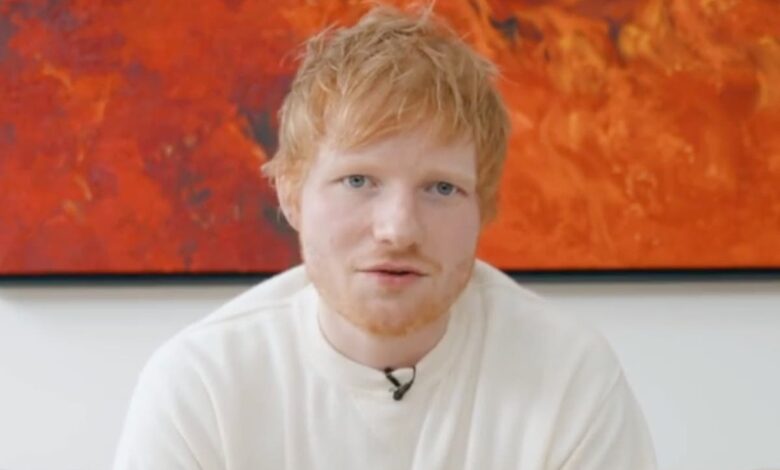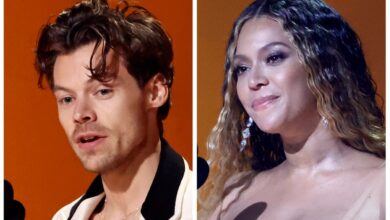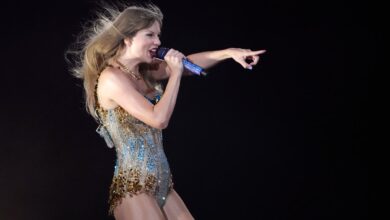The Ed Sheeran ‘Shape of You’ verdict reveals the realities of pop songwriting in the streaming era

The judgment is an emphatic vindication of the creative genius of Ed, Johnny [McDaid] and Steve [Mac].” So trumpeted Ed Sheeran’s lawyers, at the news that he and his songwriting team had won the high-profile copyright case brought against him by Sami Chokri and Ross O’Donoghue, over similarities between Sheeran’s 2017 hit “Shape Of You”, and Chokri’s 2015 release “Oh Why”.
Steady on. A key pillar of Sheeran’s defence was that the passage in question – four ascending pre-hook “oh I”s – was such a common and formulaic echo of the pentatonic scale, so overused and obvious, that it was all but unattributable. Sheeran even sang sections of “Feeling Good” and Blackstreet’s “No Diggity” in court as evidence of how predictable he’d been while writing “Shape Of You”. There’s no triumph for the art of imaginative musicianship in Justice Zacaroli’s decision that Sheeran had “neither deliberately or subconsciously” ripped off Chokri’s song, or even heard it at all.
What there is, is a timely recognition of the realities of pop songwriting in the streaming era. The ease of digital distribution has blown the gates of accessible music wide open. Figures in 2019 put the number of songs released on traditional formats over the previous 60 years at around 5 million; today it’s estimated that 22 million songs are uploaded to Spotify every year, at a rate of 60,000 per day. Somewhere in that tsunami of sound, by statistical inevitability, is a song closely resembling anything that any major songwriter might be knocking together around their Caribbean firepit. Given such monumental outpourings – just as there always seems to be someone online constructing the same meme as you – sonic commonality is inevitable, but conscious acts of plagiarism are far less likely. So the chances of one of Taylor Swift’s team stumbling across your obscure pop song and using it as “inspiration” for her next hit are, I’m afraid, vanishingly small.
At the same time, the huge income disparity between the guaranteed billion-stream songs that Ed Sheeran churns out and the pennies made by similar songs lost in the streaming depths only encourages copyright suits. It’s understandable that the starving geniuses at the bottom of pop’s ecosystem would want to bypass all the luck, happenstance and major label financing it takes to attain success and sue their way to a liveable wage. It might even feel like a storming of the pop Bastille, a righteous strike for the little guy against the lazy, manipulative production-line fat cats. And every major hit is a potential target.
They’re getting plenty of encouragement from the courts too. Dua Lipa is fighting two suits over her song “Levitating” – with one purporting she copied it from a 1979 track called “Wiggle And Giggle All Night” by Cory Daye, whose own mother couldn’t whistle it. And in 2015, the estate of Marvin Gaye successfully sued the writers of Robin Thicke’s “Blurred Lines” for $5.3m for mimicking the “feel” of Gaye’s “Got To Give It Up”, effectively – at only a little stretch – being granted legal ownership of “funky”. Two hundred musicians filed an amicus curiae brief to the appeal, claiming that “the verdict in this case threatens to punish songwriters for creating new music that is inspired by prior works”.
The Sheeran verdict might put off such frivolous and opportunistic suits, and allow musicians to continue making music without fear of streaming’s ocean of financial piranhas. As his statement rightly put it, “a culture where unwarranted claims are easily brought… is not constructive or conducive to a culture of creativity”. But this cuts both ways; this decision shouldn’t act as a green light for pop’s biggest songwriting committees, lacking ideas, to dredge the streaming sites for great but unknown songs – of which there are countless – to pilfer with impunity.
As we venture into new waters for songwriting, we need to engender a new attitude too. If music is to continue as a form of communal cultural evolution then this traditionally dog-eat-dog environment needs to develop a sense of honour and integrity. It must vow, in all cases, to give credit where credit is really due. That means acts plucked from nowhere being offered equal songwriting standing. Writing teams behind major pop hits should be granted proper recognition, while contributions from the artist themselves must never be undervalued. Artists need to acknowledge their sources and actively seek clearance before they’re forced to.
It’s an ideology that’s helped dance and rap music thrive over decades, driven by the artist rather than the money, and opening doors for underground acts and protégé to keep the music fresh. Now it’s time for pop – where a credit is often the only source of a writer’s income – to step up. Don’t settle for copycat tunes; refuse to work with “magpie” plagiarists; keep your creative conscience clear. After all, where’s the joy in performing music if it’s teeming with guilt?





